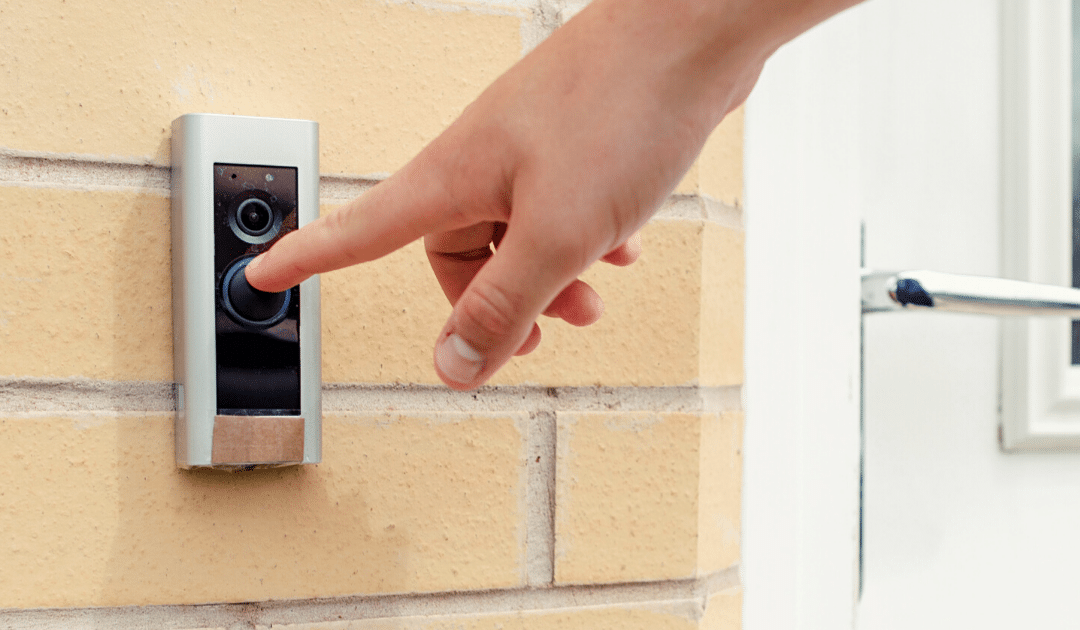You’ve got a few tools at your disposal for protecting your possessions. First, there’s homeowner’s insurance in the case of theft or loss, but you can also take steps to prevent theft in the first place, by getting a quality home security system.
There are lots of great options out there, and as technology continues to progress, the choices keep expanding. In fact, it can all be a bit overwhelming, so let’s dive into the top considerations you’ll want to look at when choosing a security system – including your first decision point: whether to go with a DIY or a professionally installed system.
DIY vs. Professionally Installed
DIY systems come as packaged kits that you need to install yourself. For most, you’ll be doing the security monitoring, usually via a smartphone app, but some require you to pay for professional monitoring. Professionally installed systems, on the other hand, are installed by a technician, and monitoring is done by the company (trained dispatchers verify triggered alarms and dispatch authorities when needed).
DIY Systems:
Pros
-
-
- Flexibility in tailoring a system to your needs
- Less expensive and usually no monthly fees
-
Cons
-
-
- Requires you to install the system correctly
- You’re responsible for monitoring (i.e. not missing a smartphone alert!)
-
Pro-Installed Systems:
Pros
-
-
- System is expertly installed by a trained technician
- 24/7 monitoring by professionals who can dispatch at a moment’s notice
-
Cons
-
-
- More expensive, with installation and monthly service fees (as well as potential false alarm fees, add-on components, and other fees)
- Usually require multi-year contracts
-
Popular Systems
Here are some of the most well-known and top-rated systems on the market. In your research, you may find others as well.
DIY Systems:
Pro-Installed Systems:
7 Additional Considerations
As you further hone your choices – be they DIY or pro – here are some other things to take into account.
1. Wireless vs. wired. Systems can be wired or wireless (or sometimes have elements of both). The basic difference is that your control panel and network of sensors are on either a cellular or a landline connection. What you choose will depend on what you need from the system. That said, always make sure to choose a system that includes two-factor authentication for extra security.
2. Pick a system that fits your lifestyle. For instance, is it mainly for when you’re out of town, or also while you’re at home? Do you want it to do smart-home integration, like turning lights off/on, controlling the thermostat, or have sensors for fire, water leak, and glass breaks?
3. Tailor it to your home. For instance, homes with large yards or outdoor areas typically need cameras; condos or apartments can get away with simpler systems.
4. Do your research. No matter if you’re installing your own system or going with a company, learn about all the components available – oftentimes, your system will be a tailored combo of what makes the most sense for keeping your home safe and secure. Systems can include any of the following: control panels, base stations, keypad, locks, contact sensors, motion sensors (interior and exterior), entry sensors, key fobs, glass break sensors, security cameras, door and window sensors, and a variety of different alarms and/or sirens. Most also have signs for your yard or windows to advertise that yours is a secure home.
5. Freedom vs. convenience. If going the DIY route, weigh whether you want the added security of having professional monitoring or if you want to do this yourself. If you’d rather not have that constant responsibility (or stress), that will limit your choices for DIY systems.
6. Conduct due diligence. If you’re leaning towards pro-installed, make sure you get three custom quotes and are clear about how the contracts differ and their terms. Also, take advantage of an in-home consultation if the companies offer it.
7. Check with your local police department. Some municipalities require that anyone running their own security system with professional monitoring obtain a permit. This ensures that their law enforcement and authorities are aware of alarm systems in their jurisdiction.
Choosing the right home security system is a highly personal choice that depends on your lifestyle, budget, home features, and the value of your belongings. Do your research and take your time – but also give yourself a high-five for taking action! Security systems can not only save you money from potential theft, but also prevent the trauma of dealing with a break-in (no one needs that stress right now!). Good luck and also remember to make sure your home insurance is up to date.
This article is furnished by California Casualty, providing auto and home insurance to educators, law enforcement officers, firefighters, and nurses. Get a quote at 1.866.704.8614 or www.calcas.com.
- Graduation – When to Remove Your Child from Your Auto Policy - May 18, 2023
- How to Prevent Catalytic Converter Theft - May 17, 2023
- How Much Does Home Insurance Cost? - May 17, 2023

